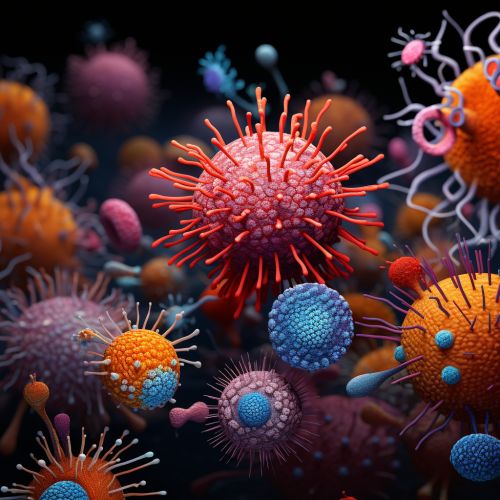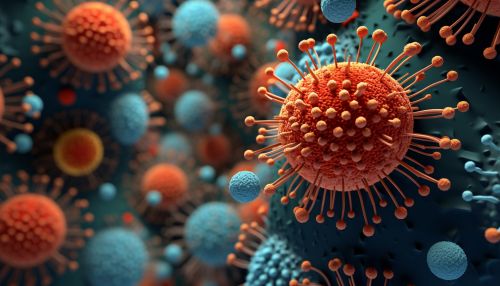Virome
Overview
The term "virome" refers to the collection of all viruses that inhabit a particular organism or ecosystem. This includes both eukaryotic and prokaryotic viruses (also known as bacteriophages), as well as the viral genetic material present in the host organism's cells. The study of the virome, known as viromics, is a rapidly expanding field of research with significant implications for human health, agriculture, and ecosystem function.
Composition of the Virome
The virome is composed of a diverse array of viruses, each with their unique genetic makeup and life cycle. This includes both DNA and RNA viruses, as well as viruses that use both types of genetic material, known as retroviruses. The virome also includes viral genetic material integrated into the host genome, known as endogenous viral elements.
Virome and Host Interaction
The virome interacts with its host organism in various ways. Some viruses cause disease, while others may be harmless or even beneficial. The virome can influence the host's immune system, metabolism, and even behavior. Understanding these interactions is a key focus of viromics research.


Virome and Disease
Many diseases are caused by viruses, and the virome plays a crucial role in disease susceptibility and progression. For example, certain viral infections can trigger autoimmune diseases, while others can lead to cancer. The virome can also influence the severity and outcome of infectious diseases.
Virome and the Immune System
The virome interacts with the host's immune system in complex ways. Some viruses evade the immune system, while others can stimulate an immune response. The virome can also modulate the immune system, influencing its response to other pathogens.
Virome and the Microbiome
The virome is a part of the larger microbiome, which includes bacteria, fungi, and other microorganisms. The virome and the microbiome interact in various ways, influencing each other's composition and function. This interaction plays a crucial role in health and disease.
Virome in Agriculture
The virome has significant implications for agriculture. Viruses can cause diseases in crops and livestock, leading to significant economic losses. On the other hand, some viruses can be beneficial, such as bacteriophages that control bacterial pathogens.
Virome in Ecosystems
The virome plays a crucial role in ecosystems, influencing biodiversity and ecosystem function. Viruses can control microbial populations, influence nutrient cycling, and even drive evolution.
Virome Research
Research into the virome is a rapidly expanding field. This includes the development of new techniques for viral detection and characterization, studies on the role of the virome in health and disease, and research into the ecological and evolutionary implications of the virome.
